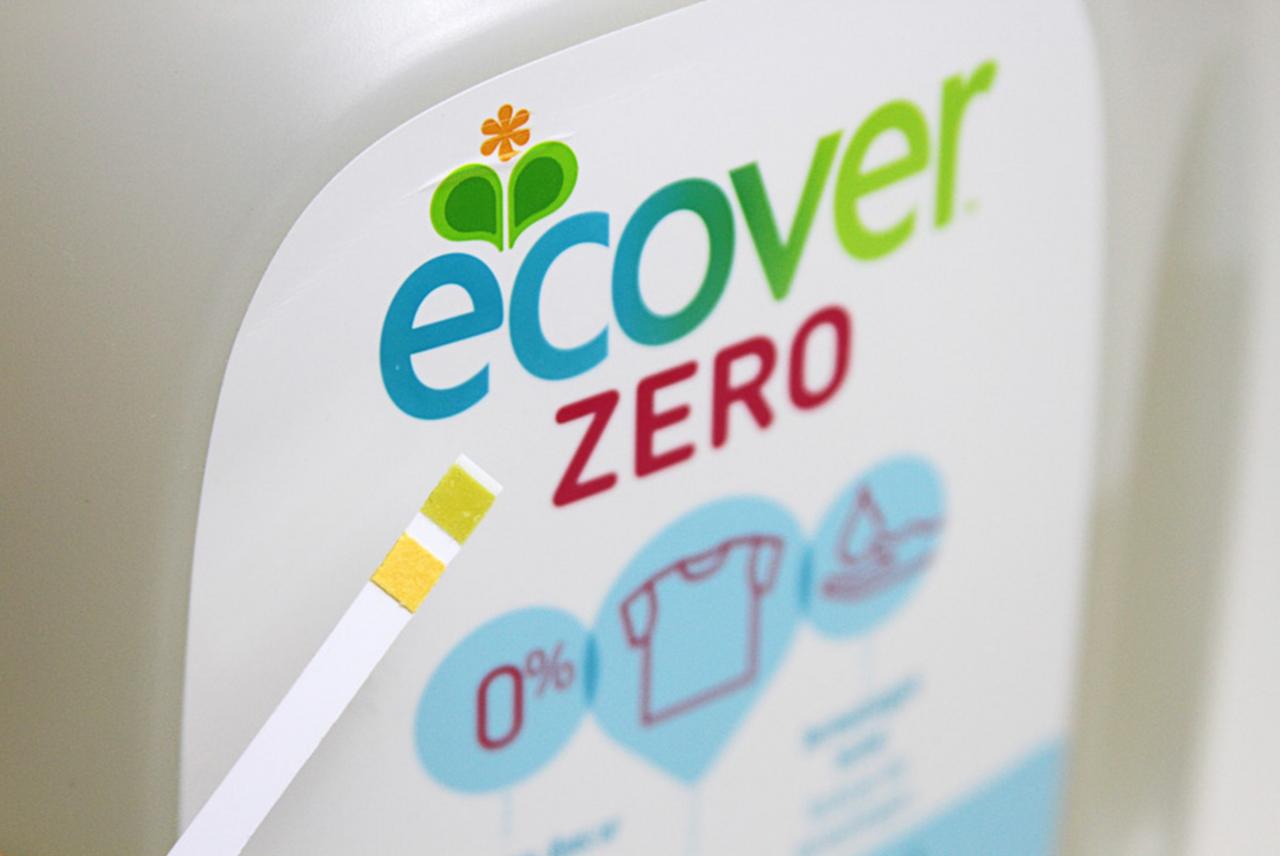Ecover’s new ingredient is an algal oil derived from an advanced technique of genetic engineering known as synthetic biology. Synthetic biology, or ‘synbio’ for short, has been described as the step from reading the genetic code to writing it. Instead of transferring genes between species, synthetic biology is able to reconfigure an organism’s DNA to coax it to perform a specific task.
Unlike conventional GM, the algal oil that Ecover wants to use will be ‘virtually’ the same as the oil ingredient it derives from – palm oil. The big difference, however, is that this palm oil ‘substitute’ is made by synthetically modified organisms (SMOs) or ‘engineered algae’.
Ecover’s release of a 6000-bottle batch in the UK in 2014 sparked uproar among global environmental organisations and consumer groups. A campaign was launched to urge Ecover to join the 117 organisations calling for a moratorium on the commercial use and environmental release of SMOs.
Synthetic sustainability
In response to the campaign, Ecover halted the use of the new ingredient to allow time for consultation with NGOs, stakeholders and industry. Ecover maintains that this new technique of genetic engineering holds the answer to the problems associated with the unsustainable cultivation of palm oil. Widely used in cleaning products (as well as food and cosmetics), palm oil, is associated with tropical deforestation, biodiversity-loss, ‘land-grabs’ and poor labour-conditions.
Although Ecover already sources its palm (kernel) oil from RSPO certified plantations, it believes that the more sustainable option is to synthetically produce it in industrial scale vats or bio-refineries, where engineered algae excrete the desired oil ingredient. These algae, however, need sugar to grow, and currently the main source for this is Brazilian sugarcane.
Campaigners conversely point out that the problems associated with palm oil are largely the same socio-ecological problems associated with monocultures of sugarcane,[1] and that switching from one tropical ‘mono-crop’ to another is shuffling the problem around rather than looking to alternatives. They point to coconut oil, which is favoured by Bio-D,[2] Ecover’s UK green-industry rival, as it is a crop largely harvested by small farmers, requires little water, herbicides or pesticides, and is often cultivated side by side with other crops ensuring farm-biodiversity.
Introducing molecular agriculture
The Ecover controversy signifies the beginning of a much broader debate as rapid advances in synbio technology enable companies to use engineered micro-organisms (mainly bacteria, yeast and algae) to act as ‘living chemical factories’ in order to produce a range of agricultural products (such as vanilla, patchouli, saffron, stevia and others).
Novel ingredients aimed specifically at ‘alternative’ or ethical consumers such as ‘vegan eggs’ or cow-free milk are also being developed. The industry claims that synbio ingredients are more sustainable, are chemically identical to their natural rivals and are safe to be consumed. However dominant NGOs including Friends of the Earth US (FoE) point out that the products of synthetic biology lack specific regulations, and have not been assessed adequately for impacts on human or ecological health and wellbeing.
What is legally ‘natural’?
Most current synthetic biology activities are covered by existing EU and US regulations on GMOs.
Under EU regulations, risk assessment for GMOs focuses on the process of genetic modification used to make a product and whether or not the GMOs are released to the environment. However the UK government wants to move EU regulation towards the US ‘trait-based’ model, where regulation covers the novelty of the product itself rather than the process of production, or its release. For example, these regulations would mean that, whether your vanilla is grown in a laboratory or on a vanilla vine in Madagascar, they would be classified the same because the process of production is not taken into account – just the end product.
According to the recent UK Parliamentary Office for Science & Technology (POST) report on synthetic biology:
“Some novel genome editing techniques, used in both synthetic biology and genetic modification are not necessarily covered by the current GMO regulations because the final product is indistinguishable from one where mutations have occurred naturally.”
This highlights the potential for some companies wishing to use synbio to avoid labelling their products as GM ‘derived from synthetic biology’ or ‘made using SMOs’ and instead may allow products to be labelled as natural. In other words, unlike conventional GM, the SMO is used only during the production process and so, supposedly, is not present in the final consumer product. Switching an EU for a US regulatory model could allow for a new legal definition of ‘natural production’.
New commodity chains
Economists, consumer and environmental groups have highlighted that blurring the boundary between natural and synthetic brings with it broader global implications. Synbio’s new ‘natural’, it is feared, may have a knock-on effect on the livelihoods of millions of farmers, particularly in the Global South, who currently produce the original agricultural crop.[3] As the World Economic Forum highlighted in their latest Global Risks report, “the invention of cheap synthetic alternatives to high-value agricultural exports … could suddenly destabilize vulnerable economies by removing a source of income on which farmers rely.”[4]
The fate of Madagascan vanilla farmers has become highly publicised through the Friends of the Earth (US) ‘Campaign for Natural Vanilla’ in which it urges ice-cream companies to commit to SMO-free ingredients. Several, including Häagen-Dazs and Ben & Jerry’s, have publicly agreed.
Understanding the future
Despite the large majority of Americans and Europeans being completely unaware of synthetic biology,10 the pace of commercialisation in the field – spurred on by huge public and private investments – is advancing at an unprecedented speed, outpacing regulatory, legal, and ethical deliberations.[5]
Consumers grappling to comprehend what synbio techniques in food and goods manufacturing mean, confront a wide range of conflicting messages. On the one hand, synbio is described simply as the modernisation of ‘age old’ yeast brewing or algal fermentation techniques, with reassurances that humans have always modified the environment and that this time it will be done ‘responsibly’.
On the other hand, synthetic biology is described as an economic ‘game-changer’ allowing us to programme living things like computer code, promising that synbio will be the most disruptive discovery of the 21st century and will lead us into a new biotech era.
Ethical SMO agriculture?
Ecover, for now, remains cautious about how consumers will respond to synthetic biology ingredients in its detergents. When asked whether consumers should think of SMO production as natural, Ecover responded “we do not believe we should refer to the algal oil as being natural,” and that the company was still to reach a decision on its use or labelling.[6]
Put simply, there is no definitive answer to how ethical this new field of production is. Ethics depends on where you sit regarding genetic engineering and its new capabilities, your definition of natural, and the trust you have in scientists and business to do the ’right thing’. One thing’s for certain, unless the public start contributing to the debate, the industry springing up around next generation GM will have firmly established a ‘life’ of its own.


